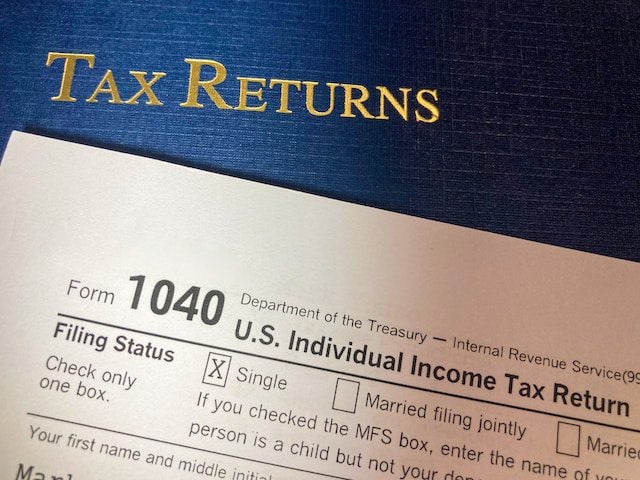What Happens if the IRS Sends You to Collections?
By Kelly Hanley, Esq., Tax Attorney
Imagine, if you will, a letter descending from the steely grays of a somber sky, bearing the ominous emblem of the Internal Revenue Service (IRS). Upon opening, you find your IRS debts have ripened into a full-blown financial crisis – you’ve been sent to collections. The very words may conjure images of stern-faced agents, hammering at your door in the wee hours, but let me assure you, the reality is quite different.
Unmasking the Dreaded IRS Collection Agency
Yes, the IRS has a collection agency, and it wields significant power. However, it’s not all dark and gloomy, and certainly not straight out of a Dickensian novel. The agency primarily exists to recoup the staggering amount of taxes owed by delinquent taxpayers. Before we delve into the darker aspects of IRS collections, let’s debunk a common myth: IRS agents won’t storm your residence demanding payment. The IRS works on a process-driven approach, characterized by multiple letters, warnings, and legal options before the so-called “men in black” show up at your doorstep.
When the IRS Debt Turns into a Relentless Chase
The journey from initial tax bill to IRS sent to collections is not a lightning-quick process. It’s more like a snail’s marathon, paced with numerous alerts, notifications, and opportunities to resolve the debt. You will receive multiple notices, starting with the CP14, the first notification that informs you about the outstanding tax debt and continues with progressively urgent warnings.
Ignoring these letters is like feeding a growing shadow in your financial closet. With each disregarded notice, the IRS inches closer to taking more serious collection actions.
Conserve Collections: The IRS’s Ace in the Hole
After the tax debt falls into delinquency, the IRS may engage private collection agencies (PCAs) to conserve collections, despite the controversy surrounding their usage. PCAs might call you regarding your debt – not at odd hours, mind you – strictly adhering to the provisions of the Fair Debt Collection Practices Act.
While the experience is not exactly comparable to a Sunday afternoon chat over coffee, it is also not the catastrophic event many fear. PCAs merely facilitate payment of the debt, and they do not have the authority to take enforcement actions against you. Those still remain with the IRS.
Facing the Music: Bill Collection After the IRS Collection Process
The question “will the IRS send you to collections?” often carries an undertone of “will they seize my house, car, or other assets?” The IRS can levy on your property to settle your tax debt, which means they may seize your property and auction it off. However, this is not a step they take lightly.
The process leading to a levy is lengthy and consists of multiple steps that give taxpayers ample opportunities to resolve their debts. One such step is a final notice of intent to levy, and a notice of your right to a hearing. This is your last chance saloon to take proactive action.
IRS Sent to Collections: More than Just Financial Repercussions
Being sent to collections by the IRS doesn’t just impact your bank account. It can snowball into other aspects of your life too. This can lead to a tax lien, a public notice to all creditors that the government has a legal right to your property due to unpaid tax debts. It’s a financial equivalent of wearing a scarlet letter – your credit score may plummet, making it difficult to secure loans or credit in the future.
But wait! Before you surrender to despair, remember that the IRS, despite its stern exterior, offers various programs to help taxpayers repay their debts without pushing them into financial hardship.
Turning the Tide: How to Handle IRS Debts
If the IRS sends you to collections, it isn’t the end of the world – it’s merely a wake-up call. There are several pathways out of this labyrinth.
You can set up an installment agreement to pay off your tax debt in manageable chunks. If you’re facing significant financial hardship, you might qualify for an Offer in Compromise, a program where the IRS agrees to settle your debt for less than you owe.
Additionally, in certain cases, the IRS might declare your debt as Currently Not Collectible, meaning you’re off the hook until your financial situation improves.
The Silver Lining: Navigating IRS Collections
In the financial odyssey of being sent to collections by the IRS, remember that you are not alone. There are professionals, like yours truly, with decades of experience assisting taxpayers in navigating these choppy waters.
If you find yourself in this situation, don’t ignore it – engage with it. Remember, the IRS doesn’t expect you to possess Scrooge McDuck-level reserves to repay your debt. They offer multiple avenues to ensure the repayment is manageable and not a crushing burden.
The dread surrounding the IRS sending you to collections is indeed formidable, but it’s not insurmountable. While the journey may be difficult, with careful navigation, patience, and the right support, you can move from the dark abyss of debt into the light of financial stability.
Harnessing the Power of Expertise
Are you feeling overwhelmed by the prospect of the IRS sending you to collections? It’s time to call in the cavalry. And by cavalry, I mean The Tax Defenders.
With The Tax Defenders, you’re not just hiring a tax attorney; you’re hiring a team of experienced professionals who live, eat, and breathe tax issues. We’ve been successfully navigating the labyrinth of the IRS for two decades, providing personalized solutions for every unique tax situation.
As the saying goes, the best things in life are free, and this includes your initial attorney consultation with The Tax Defenders. Yes, that’s right – a FREE consultation with a tax attorney to assess your situation and provide preliminary guidance.
During this session, we evaluate your case, outline your rights, and discuss possible strategies. We pride ourselves on our ability to transform a dire-sounding phrase like “the IRS sent you to collections” into a manageable, even conquerable, situation.
Don’t let your tax worries take up any more of your valuable time. Reach out today, grab your free consultation, and take the first steps toward resolving your tax issues with the confidence of having The Tax Defenders in your corner. Call today at 312-345-5440.
Related questions
How do I get out of IRS collections?
Getting out of IRS collections may seem like trying to escape a labyrinth with a blindfold on, but it’s not as daunting as you might think. Your first step should be to understand the debt, validate it, and explore your options. The IRS offers payment plans, like an Installment Agreement, for manageable monthly payments, or an Offer in Compromise for significant financial hardship. Consider seeking help from tax professionals, like The Tax Defenders, who can guide you through this maze with expertise, ensuring you’re equipped to tackle the tax Goliath head-on.
How long does IRS debt stay in collections?
IRS debt can feel like an unwanted houseguest that overstays its welcome. Generally, the IRS has 10 years to collect outstanding tax debts, starting from the date they were assessed. This period is known as the “Collection Statute Expiration Date” (CSED). However, like a twist in a well-written novel, certain actions—such as filing for bankruptcy, submitting an Offer in Compromise, or signing an Installment Agreement—can extend this timeline. Navigating this can be tricky, but with the right guidance for your case, you can turn the final page on your tax debt story.
Will the IRS go through a collection agency?
Many people visualize the IRS as a relentless lone wolf in the pursuit of tax debts. But, contrary to this popular belief, the IRS does, on occasion, tag-team with private collection agencies and similar programs. However, this is not the IRS admitting defeat or passing the baton. Instead, it’s part of a deliberate strategy to recover owed taxes, especially when their in-house resources are stretched thin. These private collection agencies operate under strict regulations, ensuring that the tax collection process remains a civil affair and not a scene from a mob movie!
How long can the IRS collect back taxes?
The IRS isn’t an eternal nemesis when it comes to back taxes. They have 10 years to collect from the date of assessment, a term known as the Collection Statute Expiration Date (CSED). Picture it like the IRS’s “Cinderella moment” – once the clock strikes midnight (or rather, ten years), the ability to collect turns into a pumpkin. But beware, certain actions like filing for an Offer in Compromise or bankruptcy can pause or even reset this clock. So, consult a tax professional to ensure you don’t unintentionally extend your date with the taxman!
How many years can the IRS go back?
When it comes to auditing your tax returns, the IRS is like a time traveler with limitations. Typically, they can go back three years from the date you filed your return. However, if they uncover a significant error—say, you’ve understated your income by 25% or more—they can turn back the clock to six years. In rare cases of fraud or if you haven’t filed a return, the IRS can journey back indefinitely. So, keep your tax records neat and tidy; you never know when you might have to revisit the past.
Reach out today, grab your free consultation, and take the first steps toward resolving your tax issues with the confidence of having The Tax Defenders in your corner. Call today at 312-345-5440.







